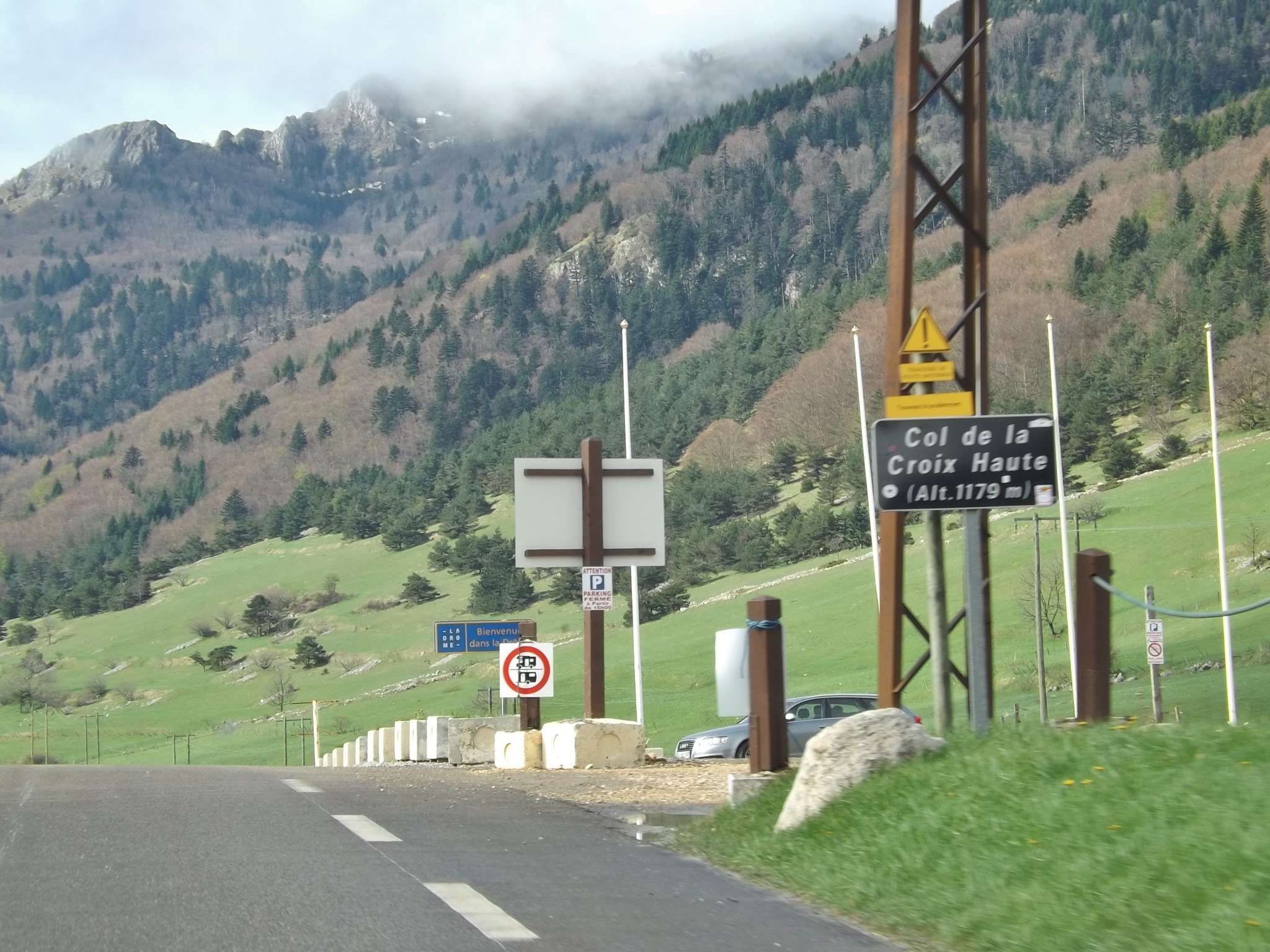Page 1 of 1
Exposing my ignorance
Posted: Sun Jun 07, 2015 11:00 am
by Hobbes
OK, this is might be a little embarrassing to admit, but until a few minutes ago, I didn't realize "col", as in Lamarck Col, is French for "pass", as in Lamarck Pass.
How did I make this (personal) discovery? Simple, we're taking a trip to the Canadian Rockies in August, and I was checking out some possible day hikes. Since Canada is English-French bilingual, all public signs are in both languages. Hence:

So, being so very clever, I whisked over to Google translate just to confirm - check it out:
https://www.google.com/#q=french+for+pass
Hmm, French for pass is 'passer'. Oh wait, how about 'mountain pass'?
https://www.google.com/#q=french+for+mountain+pass
Bingo. And, for extra credit, there's even an audio clip so that you too can properly pronounce 'col' around all your buddies.
Re: Exposing my ignorance
Posted: Sun Jun 07, 2015 1:13 pm
by sparky
In my mind I picture a "col" as a chute/notch and a "pass" is more like the low spot on a shoulder. Probably evoked from pictures of the Alps

Re: Exposing my ignorance
Posted: Mon Jun 08, 2015 12:47 pm
by Hobbes
sparky wrote:In my mind I picture a "col" as a chute/notch and a "pass" is more like the low spot on a shoulder. Probably evoked from pictures of the Alps

Yes, same here - I knew what it meant in a general sense, and just assumed it meant more of a notch than a pass. Curious (always a bad thing), I looked up the word origin. Turns out 'col' is simply a term derived from a much older noun for collar, which in turn is derived from collum, Latin for neck. The French use col primarily to describe a collar, from which col was expropriated to describe a pass:
col [kɔl]
nom masculin
couture collar
col blanc/bleu white-collar/blue-collar worker
col cassé wing collar
col châle shawl collar
col cheminée turtleneck
col chemisier shirt collar
col Claudine Peter Pan collar
col Mao Mao collar
col marin sailor's collar
col officier mandarin collar
(pull à) col roulé polo-neck sweater
se pousser du OU se hausser du OU se hausser le col (littéraire) to blow one's own trumpet
faux col
(sens propre) detachable collar
[de la bière] head
[d'une bouteille] neck
anatomie cervix, neck
col du fémur neck of the thighbone
col de l'utérus neck of the womb
cancer du col de l'utérus cervical cancer
géographie pass, col
Re: Exposing my ignorance
Posted: Mon Jun 08, 2015 1:10 pm
by Hobbes
And to get a little more nutty, while the French describe a pass as a physical characteristic ie col, (American?) English treats it more as a state of being and/or verb:
http://www.oed.com/search?searchType=di ... Btn=Search
Example 1: it has come to pass
Example 2: pass it to the right
This would make perfect sense from an American perspective, whereas during the formative period of western migration, passes seemed to represent both the metaphysical transition from one (known) place to another (uncertain), as well as the actual activity of making the trek.
Re: Exposing my ignorance
Posted: Mon Jun 08, 2015 1:20 pm
by maverick
Re: Exposing my ignorance
Posted: Mon Jun 08, 2015 4:00 pm
by Hobbes
I find the difference between actual usage and technical definition interesting. Here's an image of a nice grassy, decidedly un-col like 'Col Little Shovel':

Here's Col de la Croix-Haute in the French Alps:
https://fr.wikipedia.org/wiki/Col_de_la_Croix-Haute

Here's the complete listing of French cols - fascinating to check the images. I didn't see one that would match what we normally think of as a 'col' in the Sierra:
https://fr.wikipedia.org/wiki/Col_de_montagne
I think what we have here is an example of word adoption which is then transformed to mean something perhaps a little different than its native use. For added fun:
It may also be called a notch, a gap or a saddle, although the last-named usually has a wider meaning and may contain a mountain pass.
Cumberland Gap?
http://en.wikipedia.org/wiki/Cumberland_Gap
It's also kind of interesting how (use of) language changes over time. Check out this listing of Appalachian passes - most are named 'gaps', with a couple of 'notches' thrown in for variety:
http://en.wikipedia.org/wiki/List_of_mo ... _Mountains
Re: Exposing my ignorance
Posted: Tue Jun 09, 2015 9:06 am
by cefdc9
French speaker here (I grew up in Switzerland), and my first time posting (long time lurker). Yes, "col" means "pass". I'm not sure if the French "col" and the English "pass" are completely interchangeable, but so far, each time I saw a "pass" here in the United States, it would have been translated to "col" in French.
As Hobbes wrote, it can also means other things, such as collar. There are several French words used in mountaineering/climbing, such as "arrete", "glissade".
Re: Exposing my ignorance
Posted: Tue Jun 09, 2015 9:41 am
by maverick
Hi Cefdc9,
Welcome to HST! Thanks for your input on the subject. When you get time, we would appreciate an intro:
viewtopic.php?f=1&t=9329
Re: Exposing my ignorance
Posted: Tue Jun 09, 2015 10:46 am
by Hobbes
Welcome aboard. Whew, now that we have that settled, how many people know that the word 'gun' in "gun moll" didn't refer to a pistol, but rather a thief?
Slang gonif "thief", from Yiddish, from Hebrew gannabh "thief". (Moll is short for Molly or slang for prostitute.) So a gun moll wasn't originally a pistol toting suicide blonde like Bonnie of Bonnie & Clyde, but rather a low level street criminal associate.
I think it may be time to start hiking.
Re: Exposing my ignorance
Posted: Tue Jun 09, 2015 12:30 pm
by Jimr
ze como bombele

